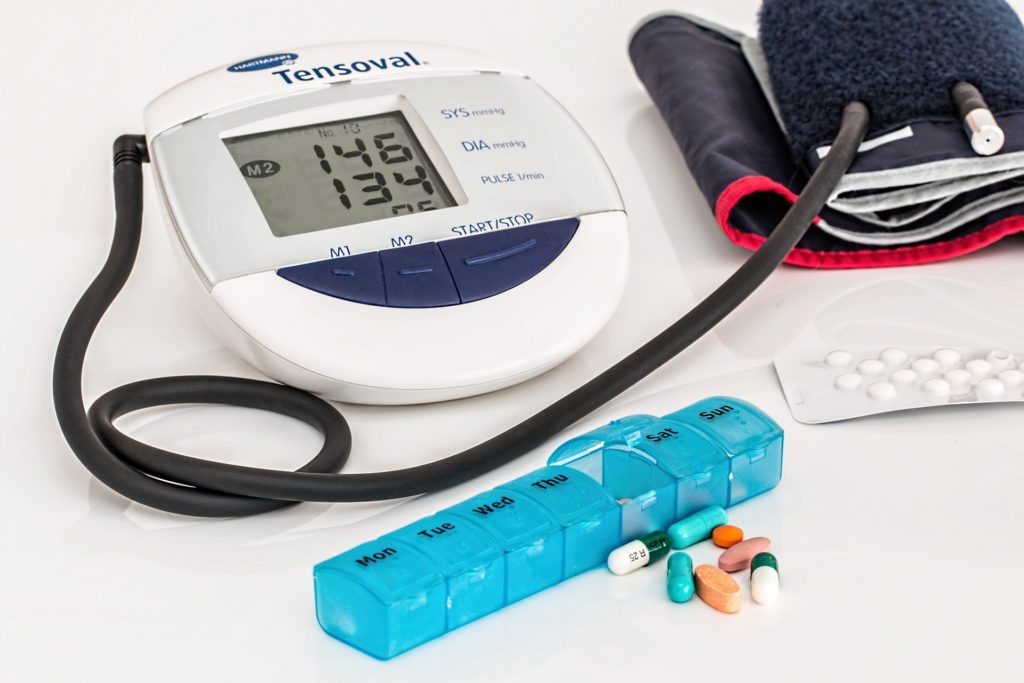Lowering high blood pressure is an effective way to reduce a person’s risk of developing type 2 diabetes in the future, according to a new study.

Doctors already prescribe blood pressure-lowering drugs to reduce a person’s chance of having a life-threatening heart attack or stroke, but whether these drugs can help to stave off diabetes has not been understood.
Now, a study funded by the British Heart Foundation (BHF) and supported by the NIHR Oxford BRC, has revealed that their protective effects are wider reaching than previously thought and may directly reduce a person’s risk of type 2 diabetes, a condition that 13.6 million people in the UK are now estimated to be at high risk of developing.
The study, published in the Lancet, is the most detailed of its kind to date, involving more than 145,000 people from 19 randomised clinical trials across the world. The researchers from the Universities of Oxford and Bristol found that a 5 mmHg reduction in systolic blood pressure – which is easy to achieve through blood pressure-lowering drugs or lifestyle changes – reduced the risk of type 2 diabetes by 11 per cent. All participants were followed up for an average of 4.5 years and 9,883 people developed type 2 diabetes.
This reduction in risk was confirmed using a genetic data analysis approach called Mendelian randomisation, which uses naturally occurring genetic differences to randomly divide participants into groups, mimicking the effects of running a clinical trial.
People with genetically-influenced lower blood pressure levels had a 12 per cent lower risk of type 2 diabetes, compared to those without the genetic associations.
Professor Kazem Rahimi, of the university of Oxford, and his team then investigated the effects of five major types of blood pressure drugs from 22 clinical trials compared to a placebo. They found angiotensin-converting enzyme (ACE) inhibitors and angiotensin receptor-II blockers (ARBs) had the strongest protective effect, both reducing a person’s relative risk of developing diabetes by 16 per cent.
Other types of blood pressure-lowering drugs were not protective. Calcium channel blockers had no effect on diabetes risk, while beta-blockers and thiazide diuretics increased the risk, despite their known beneficial effects to prevent heart attacks and strokes. This risk is already known and doctors consider it when prescribing these drugs.
The opposing effect of different types of drugs on diabetes risk is most likely due to the different ways they act in the human body, independent of their ability to lower blood pressure.
Together, these results from clinical trials and genetic studies have shown that lowering blood pressure can prevent type 2 diabetes at a similar scale already known to prevent major cardiovascular disease.
Current recommendations to reduce the risk of diabetes is to keep a healthy weight and stick to a healthy lifestyle. Now, the researchers say that existing drugs – particularly ACE inhibitors and ARBs – should now be considered in the treatment plan for some patients who are at higher risk of type 2 diabetes. They also aim to search for other interventions that will help to prevent diabetes.

Professor Rahimi (pictured left), lead researcher of the study and a consultant cardiologist, said: “Current clinical guidelines do not provide clear recommendations on lowering blood pressure as a strategy to prevent type 2 diabetes. Our research provides clear evidence that giving ACE inhibitors or ARBs, which are widely available and affordable worldwide, to patients at high risk could curb the growing burden of type 2 diabetes.”
Professor Sir Nilesh Samani, Medical Director at the British Heart Foundation, said: “Diabetes and high blood pressure are two important and growing problems which increase a person’s chance of developing an array of other serious health complications, including heart attacks and strokes. This research shows that the two are inter-connected and that lowering blood pressure could be a powerful way to reduce the risk of developing diabetes.
“It also shows that different commonly used drugs for lowering blood pressure have very different effects on risk of diabetes. Doctors should therefore consider the patient’s risk of developing diabetes when they are choosing an anti-hypertensive drug to lower their blood pressure.”